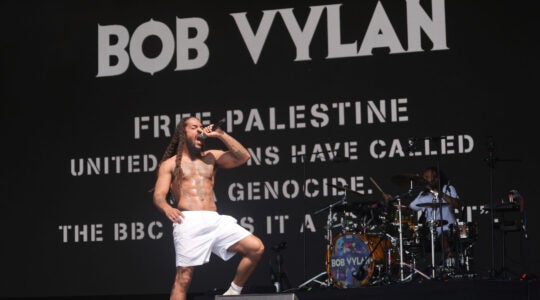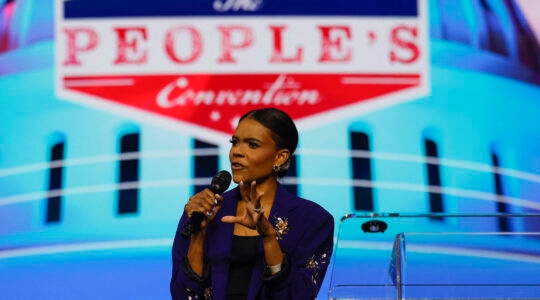Okay, maybe I’m being unfair (and bashing Tablet two days in a row for its musical tastes!)
There are some Israeli entries on its top 100 Jewish songs list, but they are there only insofar as they have meaning for American Jewish babyboomers — and even some of these are backhanded.
Tablet notes "ironically" that the most popular melody for "Oseh Shalom" was written by Nurit Hirsh — why ironically? She actually orders pizza and speaks to the grandkids in, you know, Hebrew. Kaveret (not Poogie) Gets in with "YoYa" because Lenny Kravitz ripped off its riff.
So here’s a suggestion for the next update — feel free to pull Copacabana (really — insane, obsessed and oddly dressed women — this is a cultural identifier?) and Theme from Exodus (Pat Boone!) and consider the following.
Yamim Levanim (White Days)
In the days when Israel had barely a handful of radio stations, there were certain unwritten rules that applied to all of them: If the selections switched from varied to somber, it was a signal that the censor was clearing the way for bad news — the discovery of the body of a missing soldier, the death of a founding father.
And, just as rigorously, Yom HaZikaron was given over to serious, plodding music, and festive, unfettered fare meant it was Yom HaAtzmauth.
And the song that invariably bridged the two days — around sunset — was this one, by Shlomo Yidov, an Argentinian immigrant who set Leah Goldberg’s hedonistic paean to the loveliness of doing nothing on a sunny Mediterranean day to a hymn underpinned by wistful minor 7ths.
Its pace — languid and anguished all at once — is the perfect expression of the unimaginable price Israelis pay for sunny days on the beach. And the perfect bridge between sorrow and joy.
It’s been covered to death, and probably by better singers, but I love the tinges of Yidov’s South American accent — it captures the moment an oleh realizes exactly what this country means to him.
Ein-Li Eretz Aheret (I Have no Other Country)
Written in the wake of the first Lebanon war by Ehud Manor and Corinne Elal, this song redefines patriotism better than any I’ve heard in any language: To love one’s country means standing up to it, even at the risk of alienation. "I will not keep silent when my country turns her face, I will not relinquish whispering in her ear until her eyes open."
It was an especially shocking rebuke from Manor, who in 1967 had written the lyrics to Hirsh’s triumphalist "Next Year" (which does make Tablet’s list.)
The fact that this song has been embraced by the nationalist right only enhances its subversive message, propelled forward by Elal’s anxious, anthemic chords.
This is the definitve version by Gali Atari — the golden girl who just years earlier helped secure Israel’s second Eurovision win with "Hallelujah," as vapid as this song is meaningful.
Gibor Gadol (Big Hero)
After the first Lebanon war, on the cusp of the first Intifada, Si Himan rocks a synthed 80s beat with the best of them — and expects more from her lover than just strength.
"Hey you — big hero — show me that you can, It’s no big deal to be strong, show me that you’re afraid, Then she’ll know that you can love."
"I never asked for a green plastic hero who would tie up my life."
What a rebuke to Exodus (are you listening, Pat Boone?).
JTA has documented Jewish history in real-time for over a century. Keep our journalism strong by joining us in supporting independent, award-winning reporting.





